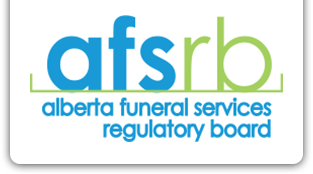Eulogy Writing
A eulogy is a well-crafted speech intended to commemorate a loved one who has died. It is usually presented at a memorial service or funeral by someone who was close to the deceased and knows them well.
A eulogy may contain:
a condensed life history of the person who has died
details about family, friends, work/career, interests, and achievements
favorite memories of the deceased
favorite poems, songs, quotes, or religious writings
The most touching and meaningful eulogies are written from the heart. A eulogy does not have to be perfect. Whatever you write and deliver will be appreciated by the people in attendance.
Time Required: One to several hours to prepare and write; 5-10 minutes to deliver.
Here's How:
Start by realizing the task at hand.
Writing and delivering a eulogy is truly an honor. It is an opportunity for you to bring the deceased person back into the minds of those in attendance. Your words will paint a picture of the deceased through the memories, anecdotes and stories you tell.
A eulogy allows the audience to remember the person -- who they were, what they did and what they enjoyed about life.
Recall your own memories.
Think about the deceased and the relationship you had with them. Where you met (if your not family), things you did together, humorous or touching memories, and what you will miss the most might be things you decide to share.
Gather information about the deceased.
Talk with family members and close friends to gather important information about the departed. Even co-workers may have valuable things to share. Some important information to include in the eulogy:
Persons age/date of birth
Family and other close relationships
Education/work/career
Hobbies or special interests
Places the person lived
Special accomplishments
Organize.
You may want to organize your notes and drafts on a computer program, plain paper or note cards. Use whatever method is most comfortable and familiar to you.
Some people prefer to prepare and deliver a serious eulogy while others will want to keep the tone light. A mix of both elements, solemnity and humor, is usually best. It allows the audience to grieve appropriately but to also share in the celebration of a life well-lived.
Create an outline of your speech and fill in the information you gathered about the person.
Keep in mind how much time you will have to deliver your eulogy. It's best to err on the short side, especially if several people will be speaking.
Write!
Write your speech in your own voice. That means to write it in the same way you would normally talk. Don't get bogged down by the formalities of writing. Your audience will want to feel like you are talking to them, not reading from a script.
Keep in mind the most important thing: write from your heart.
Review and revise.
The first draft you write is usually not the last. Read through it and decide what to keep and what to toss out. You may want to read it to family or friends to get their feedback or read it into a recording device so you can listen to it yourself.
When you think you are done, let it sit overnight. Review it again the next day when it will be fresh again. Make any necessary revisions.
Rehearse.
Practice reading the eulogy several times to become familiar with it. You don't have to memorize it unless you really want to. You will want to know it well enough that you won't have to read it word for word but it is a good idea to have a written copy, or at least notes, that you can refer to.
Finalize a copy.
It is a good idea to have a copy of the speech printed out for reference. Again, use the method most comfortable to you whether it is a computer program, note cards or plain paper.
A couple of useful tips: Print in large text so it's easy to refer to and number the pages so you don't get them mixed up.
Deliver!
Even if you are comfortable speaking to large groups of people, a eulogy can be a difficult speech to deliver. Try to remember that you are doing this to honor the memory of a loved one, not gain the approval of the audience.
Close your eyes, take a deep breath, and picture the deceased in your mind, then begin. Try to speak slowly and breathe throughout. It's easy to hold your breath when your nervous. If you need to pause and take a deep breath, do it.
Remember that just as you wrote from the heart, deliver from the heart.















